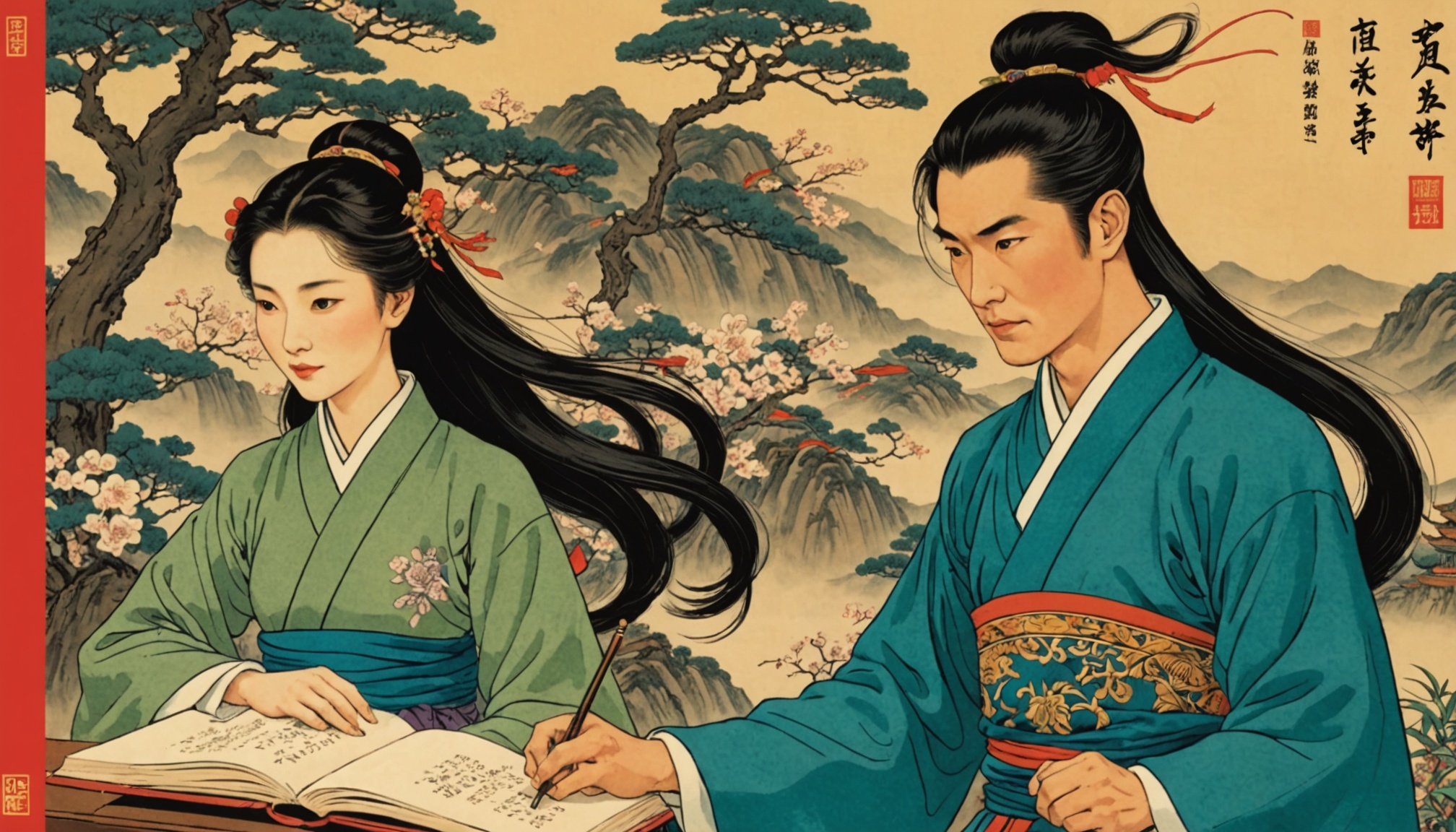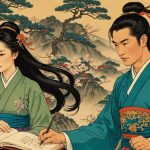Chinese novels offer a rich blend of epic storytelling, cultural depth, and literary innovation. From heroic adventures to intricate social critiques, these works have shaped not only Chinese literature but also broader East Asian culture. Exploring their themes and history reveals timeless narratives that captivate readers and invite fresh perspectives on tradition and imagination.
Overview of Chinese Novels and Their Cultural Significance
Chinese literature classics have evolved from ancient scrolls to modern web pages, shaping cultural identity over centuries. The “Four Great Classic Novels”—Romance of the Three Kingdoms, Journey to the West, Water Margin, and The Plum in the Golden Vase—are seminal works that influence storytelling styles, themes, and societal values. These novels often explore social critique, morality, and human nature, blending historical events with folklore and mythology.
Also to read : Petr Čech: a pillar among chelsea legends
Traditional Chinese novels serve as mirrors of society, reflecting familial bonds, political intrigue, and philosophical ideas. Their narratives delve into heroism, love, and ethics, using allegory and symbolism to encode cultural beliefs. This literary richness continues to inspire contemporary adaptations and translations, expanding their reach globally.
You can view more details on this page: Yuanliterature.com curates exceptional Chinese novels that bridge cultures through storytelling. This platform showcases the enduring relevance of these masterpieces for readers worldwide.
In the same genre : Learn spoken arabic online with the complete immersion program
Key Features and Major Genres of Chinese Novels
Classic Chinese Novels and Their Impact
Chinese literature classics like Romance of the Three Kingdoms, Journey to the West, Water Margin, and The Plum in the Golden Vase stand as landmarks in narrative sophistication. Each employs unique narrative structures and rich cultural symbolism, shaping Chinese identity and literary tradition. Their legacy is not just confined to fiction; these works extend into historical fiction from China, deeply influencing later novels and modern storytelling themes. These classical saga narratives use character archetypes and literary symbolism that still resonate, helping define the boundaries between classical and modern versus classical style comparison.
Popular Genres and Subgenres
Genres such as wuxia and xianxia fantasy stories hold a special place, celebrated for action-packed tales and magical systems. Wuxia and martial arts tales explore hero’s journey in Chinese stories, family dynamics in novels, and ethical dilemmas portrayed through adventurous plots. Meanwhile, xianxia fantasy stories blend Chinese mythology inspired fiction with the supernatural, introducing complex world-building techniques and philosophical underpinnings in classic works. Romance and female-oriented romantic novels, particularly Chinese romantic sagas, address themes of love and destiny and gender roles in narrative, catering to diverse narrative styles in Chinese literature.
Emerging Trends and Modern Chinese Web Fiction
The rise of popular web fiction platforms and serialized web novels has broadened access to contemporary Chinese fiction and young adult Chinese fiction. Platforms facilitate global reach, providing Chinese novels in English and fostering passionate fan engagement and interaction. Recent trends show experimentation with BL (Boys’ Love) stories from China, Chinese sci-fi literary works, and contemporary themes. Fan translations and unofficial releases boost dissemination of translated Asian novels, highlighting challenges in translation quality impact and the expanding influence of Chinese literature classics worldwide.
Platforms for Accessing Chinese Novels and Reading Trends
Top Platforms and Resources
For popular web fiction platforms and online Chinese story portals, readers have a wealth of choices. Yuan Literature stands out by delivering translated Asian novels and Chinese literature classics while supporting author recognition and fair compensation. Digital reading apps now cater to serialized web novels, BL (Boys’ Love) stories from China, and Chinese romantic sagas, boosting accessibility through user-friendly interfaces and enhanced search functions.
Free Chinese literature sources exist alongside subscription models for web fiction. Many online Chinese story portals blend these options, helping fans enjoy both contemporary Chinese fiction and classical saga narratives. Titles span genres from wuxia and martial arts tales to Chinese mythology inspired fiction, meeting diverse interests.
The Role of Translations and Cultural Export
Translation quality impact is profound. High translation quality in Chinese novels in English, such as those on Yuan Literature, shapes international reader experiences and sustains the cross-cultural appeal of Chinese fiction. Fan translations and unofficial releases are widespread, but they often vary in accuracy. Digital publishing amplifies the global reach of influential Chinese novel genres, with translation challenges and nuances influencing readers’ engagement worldwide.
Reading Community and Engagement
Vibrant reader communities and forums support fans of serialized web novels, young adult Chinese fiction, and adaptations of Chinese novels. Community interaction, from sharing recommended reading lists to fan engagement and interaction, creates bonds and encourages newcomers to explore narrative structure in Chinese storytelling. Tips for beginners: start with highly rated translations, check fan communities for guidance, and prioritise free Chinese literature sources for approachable entry points.
Analysis of Chinese Novels’ Influence, Challenges, and Future Trends
Cultural and Literary Impact
Chinese literature classics such as Romance of the Three Kingdoms and Dream of the Red Chamber play an ongoing role in shaping global perceptions. These classical saga narratives not only inform contemporary Chinese fiction but also build bridges to diverse narrative styles encountered on popular web fiction platforms. Modern adaptations, crossing into manga and serialized web novels, have been key in making ancient dynasties in fiction accessible to international audiences, amplifying the impact of Chinese novels globally.
Challenges Faced by Chinese Novels
Censorship in Chinese literature requires careful navigation by authors, affecting the thematic diversity in Chinese storytelling. Issues like translation quality impact both the resonance of translated Asian novels and the success of literary awards for Chinese fiction in foreign markets. Copyright and intellectual property rights are often strained by the prevalence of fan translations and unofficial releases, especially across online Chinese story portals.
Future Directions and Innovations
Technological advancement—audio versions and narrations, manhua adaptations, digital readers—continues to empower emerging Chinese authors. Web portals and digital publishing foster new talent and invite deeper fan engagement and interaction. As translations for global audiences expand, the power of Chinese novels to shape literary trends worldwide grows, enhancing recognized genres like xianxia fantasy stories and Chinese romantic sagas, while encouraging reader communities and forums to flourish.







